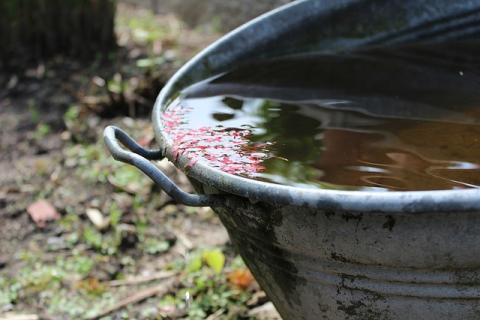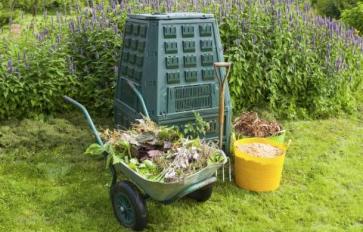
In some states, it’s illegal. In other states, it’s as common as turning on the faucet. What is it I’m talking about? Harvesting rainwater. Deterring the flow of rain runoff into a giant barrel can have its perks when it comes to saving water. But is it eco-friendly? The outlawing of rainwater collection would leave one to believe it is not. I imagine hoarding water that would naturally provide a source of water for plants would not be beneficial. Yet, what if that same rainwater were instead collected from roof runoff?
Water is the most precious resource; we cannot live without it. As droughts increase, the need for water conservation grows. Navy showers and replacing water thirsty lawns are a start, but more needs to be done.
Consider what you use water for on a daily basis. Showering, washing dishes, laundry, cooking, and of course, drinking, are a few of the ways in which we require water. It is estimated that the average person can use up to 100 gallons of water a day. A toilet flush alone uses over a gallon. That is a lot of water you are paying for just to be flushed down the drain, literally.
One of the benefits of collected rainwater is that this non-potable water source can replace the use of anything we may otherwise be concerned with drinking. Even better, it does not require the amount of energy, chemicals, and money that goes into filtering and transporting water. This means that toilets can flush, laundry can be done, and the garden can be watered -- all without relying on the tap. In turn, this can save up to 50% of our clean water consumption.
Consider the alternative of a drought. Areas that gain high amounts of rainfall can experience flooding and sewer overflow. At this point it is better to divert stormwater by utilizing a roof runoff system. It can prevent water pollution and conserve the water, to be better served in the future.
So why is it illegal in some states to capture the water that falls on your own property? It all has to do with water rights. The natural course of rainfall is not to be hindered as it will fall from the roof, onto the ground, and flow into a source that is rightfully owned by another entity. Disturbing that flow would be considered stealing from what someone else has a right to.
Yet only a small portion will make its way back into a water system. The majority that falls onto a roof will be evaporated. Considering the small chance that the roof runoff will return to property right owners seems an unjustifiable reason to prevent home-owners from collecting what falls onto their property.
While rainwater harvesting may not be the answer to the water shortage, it is a step in the right direction. In times of water scarcity, it is a viable source. Taking pressure off municipal water can save money, conserve water, and protect our resources.








